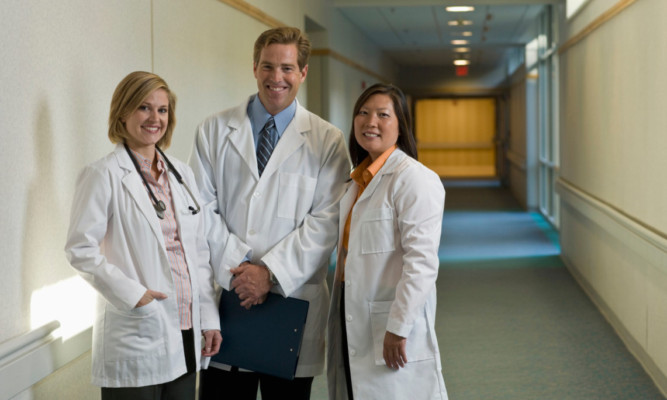
To err is human. But to be a GP, divine.
Doctors command the greatest respect of any profession aided, perhaps, by dodgy behaviour among former respect rivals bankers, priests, police chiefs and Olympic athletes.
In a opinion poll last year, 90% of the public respected doctors but only 15% respected politicians or bankers.
A Health Secretary once accused doctors of thinking they were God. Whether they have such a high opinion of themselves or not, one thing’s certain the public definitely do.
The evil Harold Shipman didn’t knock public confidence and the recent scandal at Mid Staffs has been laid at the door of bean-counting bureaucrats rather than blessed nurses and doctors giving emergency care.
So that’s why there was a shocked reaction to news that 97% of doctors have given a “placebo” a harmless but pointless pill rather than explain that patients won’t benefit from medication.
Of course, we’ve all done the same with kids given them sweets or an extra hour in front of the box to win back time or control in our busy lives.
As GPs leader, Dr Clare Gerada, put it: “A kiss on the cheek when you fall over is a placebo.”
I suppose that’s true. Mere humans offer unmedicated comfort to “make things better” all the time. But doctors?
We’re shocked to find these life and death dispensing heroes have the same frailties as the rest of us. We don’t expect them to hand out pointless pills and potions just to avoid difficult conversations or get needy patients out of the surgery. Knowing this happens erodes trust and makes patients feel stupid. But let’s keep things in perspective.
One in 10 GPs surveyed had handed out a sugar pill placebo but over their entire career. Just one in 100 do it every week. Still, why do they do it at all?
One busy GP who’s handed out a single false pill in 10 years told me a drug dispensing doctor is the most powerful remedy available. Patient belief is a large part of recovery and healthy bodies heal themselves most of the time.
Giving a placebo justifies the patient’s faith and reinforces the habit of coming to the surgery when things go wrong, rather than self-medicating.
There’s a more serious side to all this, though.
A study has shown doctors have to give antibiotics to more than 12,000 people with acute respiratory infections to prevent just one being hospitalised with pneumonia. But that health benefit is outweighed by the promotion of resistant superbugs that will affect everyone else.
So, rather than wondering why doctors can’t say no to demanding patients, maybe we should try to understand a few medical facts. Antibiotics can help prevent serious chest infections caused by bacteria. But they can’t help viral infections. Of course, when we’re coughing and spluttering we need doctors to decide what we have. But once told, we should accept the decision and head home, empty-handed if need be, to get on with healing ourselves.
Otherwise the desire for a prescription will weaken the effectiveness of life-saving drugs. But the cat’s out of the bag we know GPs use placebos.
So will patients look dubiously at future prescriptions and wonder if they’ve just been palmed off?
I doubt it. We’ve placed doctors and nurses on the highest possible pedestal. That might not be healthy or completely deserved. But as other professions are found wanting, it’s entirely understandable.

Enjoy the convenience of having The Sunday Post delivered as a digital ePaper straight to your smartphone, tablet or computer.
Subscribe for only £5.49 a month and enjoy all the benefits of the printed paper as a digital replica.
Subscribe